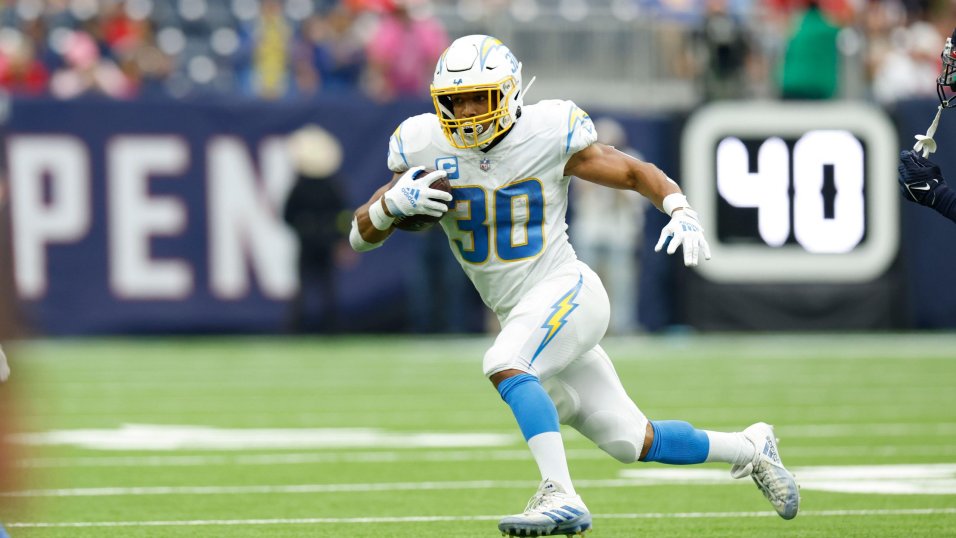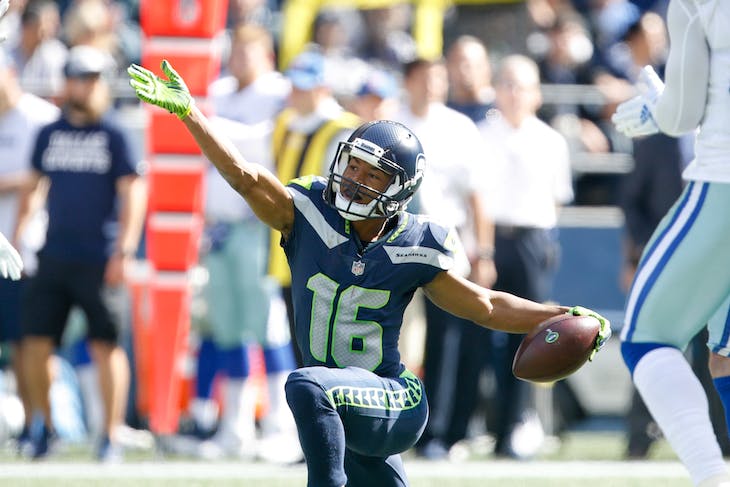Players are locked in fantasy football to ensure fair gameplay and prevent unfair advantage during matches. In fantasy football, locking players ensures that once a player’s game has started, their points are no longer eligible for the current week’s scoring.
This maintains fairness among all teams and prevents managers from making last-minute changes based on ongoing games to gain an unfair advantage.
Table of Contents
ToggleUnderstanding The Appeal Of Fantasy Football
Fantasy football is not just a game; it is an experience that captivates millions of fans and players around the world. Understanding the appeal of fantasy football is crucial to comprehend why players get locked into this exhilarating activity. In this section, we will explore the various aspects that make fantasy football such a popular recreational activity, enthralling both its fans and participants.
Fantasy Football As A Popular Recreational Activity
Fantasy football has become a favorite pastime for sports enthusiasts, sparking a wave of excitement during football season. This virtual game allows fans to create and manage their own team of professional players, competing against friends, colleagues, and even strangers. The essence of fantasy football lies in the thrill of the competition, as players strive to outwit and outmaneuver their opponents to clinch victory.
So, what makes fantasy football so appealing? Let’s delve deeper into its allure.
Exploring Its Appeal To Fans And Players Alike
Fantasy football offers a unique blend of competition, strategy, and camaraderie. It allows fans to immerse themselves in the sport they love, experiencing the thrill of being a team manager and making critical decisions that could impact the outcome of each game. Here are some key reasons that contribute to the widespread appeal of fantasy football:
- Formation of virtual teams: Fans have the freedom to pick players from across various teams and create their dream lineup, blending stars and underdogs to maximize their team’s performance.
- Strategic decision-making: Success in fantasy football requires careful analysis and decision-making skills. Participants must consider factors like player statistics, injury updates, and upcoming games to make informed choices for their lineup.
- Competitiveness: Fantasy football fosters a strong sense of competition among players. The desire to triumph over opponents, whether friends or colleagues, adds an extra level of excitement and motivation.
- Engagement and interaction: Fantasy football encourages active participation and engagement with the sport. Fans eagerly follow player performances, team standings, and game results, fostering a deeper connection with the sport they love.
This combination of elements makes fantasy football a unique recreational activity that keeps players locked in throughout the season. It enables fans to amplify their passion for football, creating a sense of ownership and involvement in the games they watch, while also fostering a sense of camaraderie and friendly competition among fellow players.
The Thrill Of Drafting The Perfect Team
The journey of fantasy football begins long before the games are even played. It starts with a single moment, a moment that sends a rush of excitement through the veins of every fantasy football enthusiast – the moment of drafting the perfect team. This exhilarating experience ignites a fire within, as managers strategize, analyze, and select the players they believe will lead them to victory. The drafting process is of utmost importance in fantasy football, as it sets the stage for the season and determines the fate of the managers. With careful consideration, managers aim to construct a team that is a force to be reckoned with. In this article, we delve into the heart of the matter, exploring the drafting process and the strategies employed to secure players who possess the potential for greatness.
The Drafting Process And Its Importance In Fantasy Football
The drafting process in fantasy football is an exhilarating journey that enables managers to handpick their dream team. It is a moment that carries immense weight, as the selections made during this process will shape the direction of the entire season. Managers must carefully assess their options, considering various factors such as player performance, position scarcity, and potential injury risks.
The drafting process commences with managers conducting thorough research on player statistics, team dynamics, and performance trends. Powered by extensive data analysis, managers rank players based on their expectations for the upcoming season. Bold predictions and calculated risks are taken, as the ultimate goal is to build a team that outperforms all others.
Strategies For Selecting Players Based On Positions And Performance
When it comes to selecting players in fantasy football, managers must strategize based on player positions and performances. Each position carries its own unique set of challenges and opportunities, and managers need to make the most of these factors to gain a competitive edge.
1. Quarterbacks, Running Backs, and Wide Receivers
These positions are crucial in fantasy football as they carry a significant portion of the team’s scoring potential. Quarterbacks, running backs, and wide receivers often top the priority list during drafts. Managers carefully evaluate their projected performance, considering factors such as past statistics, strength of schedule, and team dynamics.
2. Tight Ends and Defense/Special Teams
Tight ends and defense/special teams are less predictable positions, but they can still dictate a team’s success. Managers analyze player consistency, target share, matchups, and team tendencies to select players who have the potential to provide valuable contributions to their team’s overall performance.
3. Drafting Depth and Bench Strength
A successful fantasy football team requires not only star players but also depth and bench strength. Managers must ensure they have suitable backups and substitutes should injuries or bye weeks occur. By selecting players with high upside and potential breakout candidates, managers can secure a solid foundation for success.
Drafting the perfect team in fantasy football is a thrilling pursuit that challenges managers to make calculated decisions based on player positions and performances. It is through careful strategizing and analysis that managers shape their season-long destiny. With every pick, the excitement heightens, as managers envision their team dominating the leaderboard. So, gear up, fantasy football enthusiasts, and prepare for the adrenaline-filled adventure of drafting your perfect team!
Unraveling The Complexities Of Player Rankings
In fantasy football, players are locked in to maintain fairness and competitiveness. This system removes the advantage of constantly swapping players based on their performance, enhancing the strategic aspect of the game.
The Significance Of Player Rankings In Fantasy Football
In the fascinating world of fantasy football, player rankings play a pivotal role in determining the success of a team. These rankings serve as a key tool for fantasy football enthusiasts, providing a framework for crafting winning strategies and making informed decisions.
Player rankings provide the backbone for fantasy football leagues, helping managers prioritize players based on their capabilities and potential. By assigning a numerical value or a ranking to each player, these rankings aid in the selection process, ensuring that teams are well-balanced and stacked with top-performing individuals.
Factors Considered In Player Rankings And Their Impact On Team Selection
The art of assigning rankings to players involves a thorough evaluation of various factors that significantly impact team performance. Let’s take a closer look at some of these crucial factors:
| Factor | Impact on Team Selection |
|---|---|
| Player Performance | The historical and ongoing performance of a player directly influences their ranking. Consistency, skill level, and recent form contribute to the overall assessment. |
| Team Situation | A player’s team situation, including the offensive line, quarterback quality, and offensive play-calling, can influence their ranking. Higher-ranked players often benefit from playing on teams with strong supporting casts. |
| Injury Risk | Injuries can significantly impact a player’s performance and availability. Players with a history of injuries or those currently recovering may receive lower rankings due to the associated risks. |
| Strength of Schedule | The difficulty of a player’s upcoming schedule is taken into consideration. A more challenging set of opponents can result in a lower ranking, as it may impede a player’s ability to produce consistent fantasy points. |
By carefully evaluating these factors and assigning appropriate rankings, fantasy football managers are able to make strategic decisions when selecting their team. This ensures that the team is comprised of players who offer the greatest potential for success.
In conclusion, player rankings hold tremendous significance in the realm of fantasy football. They act as a compass for team selection, guiding managers on their path to victory. Understanding the complexities behind player rankings allows managers to navigate the intricacies of fantasy football with confidence and precision.
Analyzing The Impact Of Player Locks
Player locks in fantasy football have a significant impact for several reasons. They ensure fair competition, prevent last-minute changes, and maintain the integrity of the game, allowing for a level playing field. By analyzing these locks, it becomes clear why they are necessary in maintaining the balance and authenticity of fantasy football drafts.
Examining Why Players Are “locked” In Fantasy Football
In the world of fantasy football, the concept of player locks can be both a blessing and a curse for team managers. This crucial aspect of the game requires a deeper analysis to understand its impact. Player locks are implemented to ensure fairness and maintain the integrity of the game. When it comes to managing a fantasy football team, it’s vital to grasp why players are “locked” and how it affects team managers.
The Concept Of Locked Players And Its Implications For Team Managers
In fantasy football, player locks refer to the specific time period before a game where a player’s status becomes fixed, and any changes to the roster are restricted. This means that once a player has been locked, team managers cannot add, drop, or trade that player until the next lock period. Understanding the implications of locked players is fundamental for team managers to strategize and make informed decisions.
One of the primary reasons for player locks is to create a level playing field for all participants. By enforcing locks, fantasy football platforms ensure that team managers have an equal opportunity to make adjustments and set their lineups before the games begin. Without player locks, some team managers might have access to real-time updates or injury news, giving them an unfair advantage over others. Therefore, locked players help maintain fairness and keep the competition competitive.
Moreover, locked players also force team managers to carefully consider their choices and make strategic decisions. When a player is locked, it means that their performance from the previous game and any updates are already accounted for in the scoring system. This adds an exciting element of prediction and enables team managers to assess players based on their long-term consistency rather than chasing short-term gains. With locked players, team managers are encouraged to evaluate each player’s overall performance and potential, leading to more thoughtful lineup selections.
Additionally, the concept of locked players promotes a sense of commitment and accountability among team managers. Once a player is locked, the decision to keep them or replace them becomes binding until the next lock period. This encourages team managers to research, analyze statistics, follow injury reports, and stay updated on player news. By doing so, they can maximize the points their team earns and optimize their chances of success. Locked players demand active participation and dedicated decision-making from team managers, enhancing the level of engagement in fantasy football.
In conclusion, player locks in fantasy football play a significant role in maintaining fair competition, encouraging strategic decision-making, and fostering commitment among team managers. By understanding why players are “locked” and analyzing the impact of these locks, team managers can improve their decision-making processes, increase their chances of success, and enjoy a truly exhilarating fantasy football experience.
Strategies For Success In Overcoming Player Locks
Player locks in fantasy football can sometimes feel like a hurdle for managers, limiting their ability to make necessary changes to their teams. However, with the right strategies in place, you can navigate these player locks and ensure your team continues to thrive. In this article, we will explore some effective tips and techniques to handle player locks, as well as how to adjust team strategies and make accurate roster management decisions.
Tips And Techniques To Handle Player Locks
When faced with player locks, it’s essential to have a plan in place to overcome this obstacle effectively. Here are some tips and techniques that can help you manage player locks with ease:
- Closely monitor injury reports: Injuries are common in the world of fantasy football, and they can significantly impact a player’s performance. By staying updated on injury reports, you can anticipate player locks and make alternative plans beforehand.
- Utilize substitute players: When one of your key players is locked, consider utilizing substitute players who can potentially deliver a strong performance. These substitute players may not always be on par with your locked player, but they can still help secure valuable points. Make sure to analyze matchups and utilize the best available option.
- Stay active on the waiver wire: The waiver wire is a valuable resource for finding new talent or potential breakout players. Regularly scanning the waiver wire and making smart additions to your team can help compensate for player locks and maintain a competitive edge throughout the season.
- Make calculated trades: Evaluating trade opportunities can be an effective strategy to overcome player locks. Look for trade deals that can provide you with an impactful replacement for your locked player. This approach requires analysis and negotiation skills to make a fair trade that benefits your team.
- Monitor player performance trends: Keeping a close eye on player performance trends can allow you to identify potential breakout stars or players who are currently experiencing a dip in form. This knowledge can help you make informed decisions when faced with player locks.
- Build a well-rounded team: A robust and well-rounded team can compensate for the absence of a locked player. Focus on drafting and acquiring players across different positions, ensuring you have depth and versatility in your roster.
Adjusting Team Strategies And Making Effective Roster Management Decisions
Dealing with player locks requires adapting your team strategies and making crucial roster management decisions. Consider the following approaches:
- Focus on matchup-based decisions: Analyze the weekly matchups and adjust your starting lineup accordingly. This approach allows you to capitalize on favorable matchups and exploit opponent weaknesses despite player locks.
- Implement a streaming strategy: In certain positions, such as defense and kicker, streaming can be an effective strategy to navigate player locks. By cycling through available options based on weekly matchups, you can consistently find productive replacements.
- Monitor bye weeks: Be aware of the bye weeks for your players when constructing your team. Having a well-planned roster that accounts for bye weeks can help you manage player locks more effectively by ensuring that you have available players each week.
- Regularly reassess team needs: Constantly evaluate your team’s strengths and weaknesses and make adjustments accordingly. Identifying areas of improvement and addressing them promptly can help mitigate the impact of player locks.
By employing these strategies and approaches, you can successfully navigate player locks in fantasy football. Remember, adaptability and proactive decision-making are key to ensuring your team remains competitive and resilient throughout the season.

Credit: www.pff.com
Frequently Asked Questions Of Why Are Players Locked In Fantasy Football?
Why Are Players Locked In Fantasy Football?
In fantasy football, players are locked to maintain fairness and prevent roster manipulation during games.
How Long Do Players Stay Locked In Fantasy Football?
Players in fantasy football typically stay locked until the start of their respective NFL games to ensure fair competition.
Can Players Be Unlocked Before Their Games In Fantasy Football?
No, players cannot be unlocked before their games in fantasy football to maintain the integrity of the game.
What Happens If I Try To Make Changes When Players Are Locked?
If you try to make changes when players are locked in fantasy football, your transactions will not be processed until they become unlocked.
How Does Player Locking Affect Trades In Fantasy Football?
Player locking in fantasy football affects trades by preventing the trading of locked players until their games have concluded.
Conclusion
Understanding why players are locked in fantasy football is crucial for all players and owners alike. By comprehending the reasons behind player locks, such as injury updates and roster manipulation, fantasy football enthusiasts can make informed decisions during crucial game weeks.
Staying updated on player statuses and remaining flexible in team management are paramount in achieving success in this exhilarating virtual sport. So, dive into the intricacies of player locks and elevate your fantasy football game to new heights!






